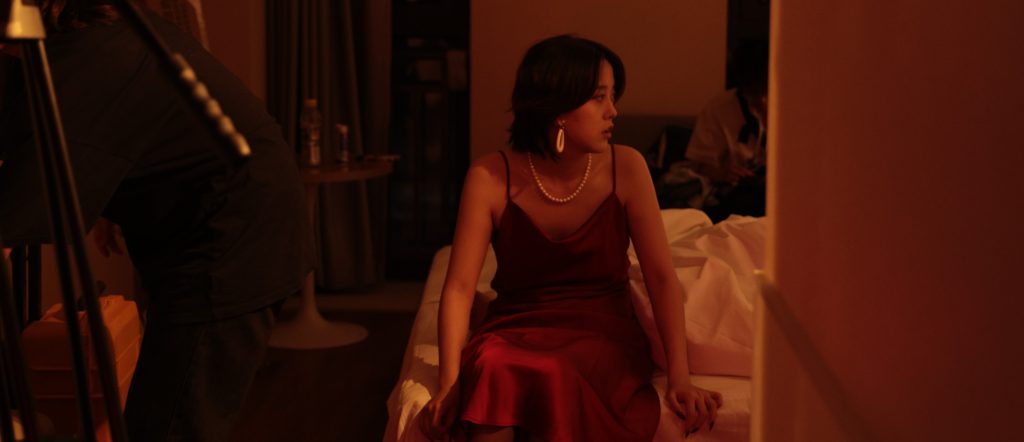Forest Road (2024) and the Bittersweet Search for Connection

It’s been a while since I reviewed a short film. And before you assume it’s because short films not considered “real films”, I can assure you that you are dead wrong. Short films have an even harder task than feature length films since they have to convey their message in only 10-20 minutes. Because of this time restraint, they have to be extra creative or choose a simple, but effective premise. This can range from current events to heartfelt stories about connection like this week’s entry.
David (played by Wang Zhidong) is a young man who works at a hair salon. Despite making a decent living for himself, he struggles with feelings of loneliness. Meanwhile, Holzwege (played by Ning Xinyao) is a young woman who was searching for love and connection, only to believe it was a lie. After David meets her through an online escort service, the two grow close over the course of a few days. But just as things begin looking up for them, reality soon comes crashing down.

Before I start my review, I want to mention that this is a student production. That being said, if you’ve seen the anime film Your Name, you might see some similarities. Even though David met Holzwege through an escort site, it’s apparent that he wants something more. And despite Holzwege’s insistence that love is a lie, she partially reciprocates his feelings. But at the end of the day, she remembers that what the two went through was only part of her job. And the only one visibly heartbroken is David. This echoes a growing problem in the youth of East Asia in general: the loneliness epidemic stemmed from increasingly crushing societal expectations.
Unlike bigger budget productions, Forest Road utilizes a myriad of cinematic techniques from the late 1990s to 2000s. The most prominent is motion blur, which is utilized when the characters experience a heightened sense of emotion. Motion blur occurs when the camera uses a slower shutter speed to emphasize how the human eye perceives motion. And plenty of indie films (some that I’ve reviewed) are famous for using this to create a distinct visual effect. But besides the use of motion blur, Forest Road also effectively uses medium to wide shots to convey a solemn tone. Something that I rarely see today, yet something I also miss.

To complement the film’s semi-anachronistic cinematic style, the music focuses on soft piano keys. The score further enhances the tone of loneliness and helps us get a glimpse into both characters’ emotional states. Listening to it leaves you feeling wistful for the right person to come along. Forest Road is very competently made for such a small production of a little less than a 10,000 Chinese yuan (about $1,500). My only nitpick is that there are times where it would’ve been more appropriate use medium shots to capture both characters. Which leads me to the cons.
I think the biggest shortcoming of the film is its sound design. Some lines of dialogue are too quiet while the general room tone felt too sterile. I understand a movie isn’t the perfect representation of real life. For example, real life has a lot of background sound. But I would’ve preferred some form of white noise or an ambient track over dead silence. Lastly, while there are English and Chinese subtitles, the English subs are not completely accurate with the Chinese subs. While they are serviceable (unlike some Chinese street signs I’ve come across), it does make you pause the film to fully comprehend what’s going on.

For a small production on a tight schedule, Forest Road does a wonderful job conveying its message of loneliness to the audience. While technically not the most perfect film I’ve seen, you have to remember it is a student production. And for what training they’ve had, I’m fairly satisfied with their first film. If you’re looking for a heartfelt yet bittersweet movie about the search for connection, this may just be what the doctor ordered.








